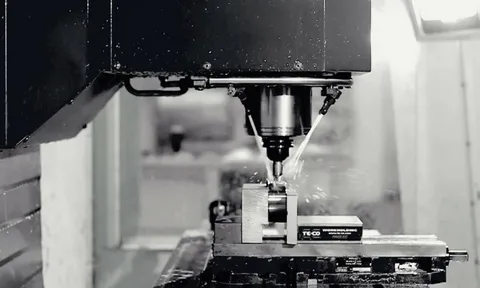CNC machining, or Computer Numerical Control machining, is a modern and highly efficient manufacturing process that has revolutionized industries across the world. By employing a computer system to control machine tools, CNC machining offers precision, repeatability, and automation, ensuring high-quality production with minimal human error. As businesses seek to stay competitive in an increasingly complex market, CNC machining has emerged as a vital solution for businesses of all sizes. From small-scale operations to large manufacturers, integrating CNC technology can provide numerous advantages that enhance production capabilities, reduce costs, and improve the overall efficiency of manufacturing processes.
This article explores the top advantages of using CNC machining for your business, detailing how this technology can significantly benefit your company in terms of precision, cost-effectiveness, speed, versatility, and quality. Whether you’re already utilizing CNC machining or considering adopting it, understanding these benefits can help you make more informed decisions about the future of your business operations.
Precision and Accuracy in Manufacturing
One of the primary advantages of CNC machining is its ability to provide unparalleled precision and accuracy in manufacturing. Traditional machining methods often rely on human skill to achieve the desired results, which can lead to variations in the final product due to human error or limitations in manual techniques. CNC machines, however, are guided by computer programs that ensure each operation is carried out with consistent accuracy. This results in parts and products that meet strict specifications and quality standards, reducing the likelihood of defects and minimizing the need for rework.
The precision of CNC machining allows businesses to manufacture complex parts with intricate designs that would be difficult or even impossible to achieve using manual techniques. This capability is particularly beneficial for industries that require tight tolerances, such as aerospace, automotive, and medical device manufacturing. By ensuring that each component is made to exact specifications, CNC machining helps businesses maintain high levels of product quality and consistency, which is essential for customer satisfaction and long-term success.
Cost-Effectiveness and Reduced Waste
CNC machining is also a highly cost-effective manufacturing solution, especially when considering long-term production runs. While the initial investment in CNC equipment may seem substantial, the efficiency and automation provided by these machines can significantly reduce operational costs over time. CNC machines operate with minimal human intervention, which means businesses can save on labor costs and reduce the chances of human error. Furthermore, the high precision of CNC machining minimizes the likelihood of defective products, reducing material waste and scrap.
In addition to reduced labor and waste costs, CNC machining is particularly advantageous for businesses that require low to medium production volumes. Unlike traditional manufacturing methods, which may require expensive molds or tooling for each product, CNC machining uses computer programs to create parts directly from raw materials. This flexibility allows businesses to quickly adapt to changes in product design or production requirements without incurring significant additional costs. Ultimately, the cost-effectiveness of CNC machining helps businesses remain competitive while maintaining profitability in a fast-paced market.
Speed and Efficiency in Production
Another key benefit of CNC machining is its ability to significantly speed up production times. Traditional machining methods, such as manual turning or milling, can be slow and labor-intensive, particularly when producing large quantities of parts. CNC machines, on the other hand, are highly automated and can operate continuously without the need for breaks or downtime. This allows businesses to complete production runs much faster, enabling them to meet tight deadlines and increase overall output.
The efficiency of CNC machining is further enhanced by the fact that these machines can perform multiple operations in a single setup. For example, a CNC machine can simultaneously drill, mill, and tap a part, eliminating the need for multiple machines or manual intervention. This multi-tasking capability reduces setup times and improves the overall workflow, leading to faster production cycles. With CNC machining, businesses can achieve greater throughput, which is especially important for industries with high-demand products or time-sensitive projects.
Versatility in Materials and Applications
CNC machining is known for its versatility, as it can be used with a wide variety of materials, including metals, plastics, wood, and composites. This flexibility makes it suitable for businesses in diverse industries, from aerospace to consumer electronics. Whether you need to produce intricate metal components, durable plastic housings, or wooden prototypes, CNC machining can handle a wide range of materials with ease. The ability to work with different types of materials allows businesses to cater to a broad spectrum of customer needs and market demands.
Moreover, CNC machining can be applied to a wide range of applications, from prototyping to mass production. For businesses involved in product development, CNC machining allows for the rapid creation of prototypes that can be tested and refined before moving to full-scale production. This capability significantly shortens the product development cycle, allowing businesses to bring new products to market faster and more efficiently. Additionally, CNC machines can be programmed to produce both simple and complex parts, making them ideal for industries that require high-quality, customized solutions.
Improved Quality Control and Consistency
Maintaining high-quality standards is critical for any business, and CNC machining plays a crucial role in ensuring consistent product quality. One of the key advantages of CNC machining is its ability to produce parts with uniform precision throughout the entire production process. Once a CNC machine is programmed and set up, it can replicate the same operation many times without variation, ensuring that every part meets the same high-quality standards. This level of consistency is difficult to achieve with manual machining methods, where slight variations can accumulate over time and affect the final product.
Furthermore, CNC machines are equipped with advanced quality control systems that monitor the production process in real-time. These systems can detect issues such as dimensional inaccuracies or tool wear, allowing operators to make adjustments before defects occur. This proactive approach to quality control helps prevent costly errors and ensures that products are consistently manufactured to specification. By incorporating CNC machining into your business operations, you can improve overall product quality, build stronger customer trust, and reduce the risk of costly product recalls or rework.
Conclusion
Incorporating CNC machining into your business operations offers numerous advantages that can improve efficiency, reduce costs, and enhance product quality. The precision, cost-effectiveness, speed, versatility, and consistency provided by CNC machining make it an invaluable tool for businesses in a wide range of industries. Whether you’re looking to streamline your production processes, produce high-quality components, or increase your output, CNC machining can help you achieve these goals while maintaining a competitive edge in the market. By embracing this advanced manufacturing technology, you can position your business for success and take full advantage of the many benefits CNC machining has to offer.



